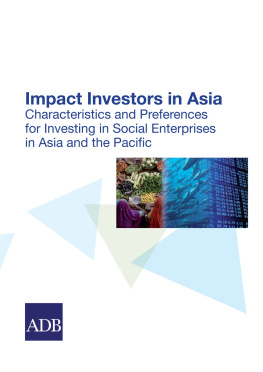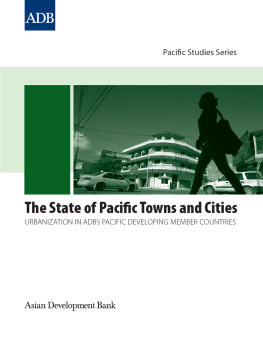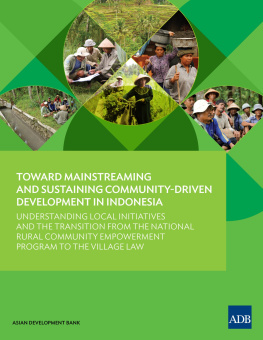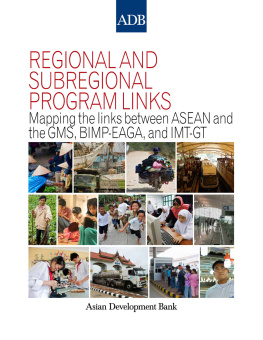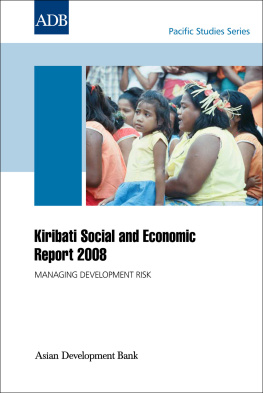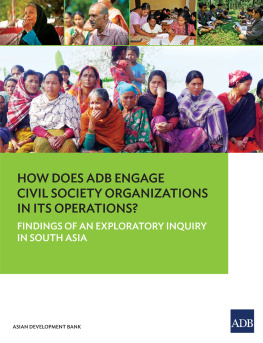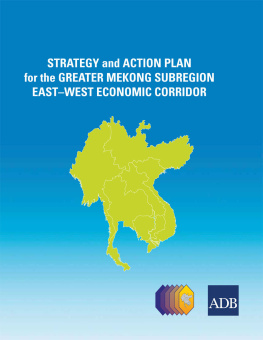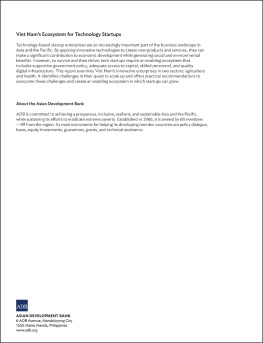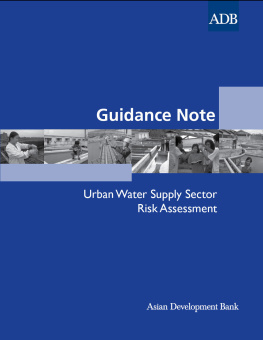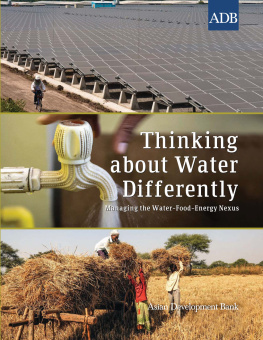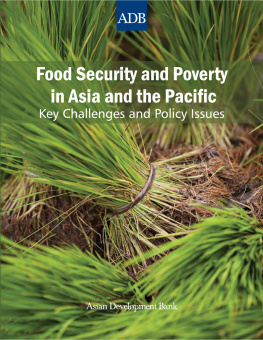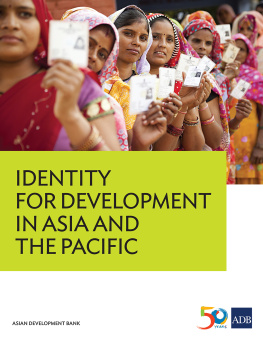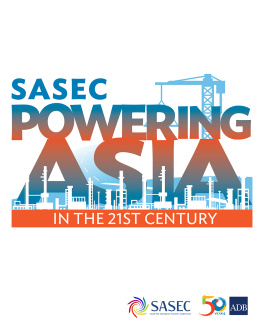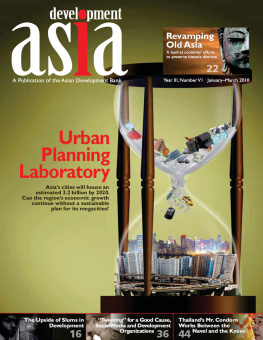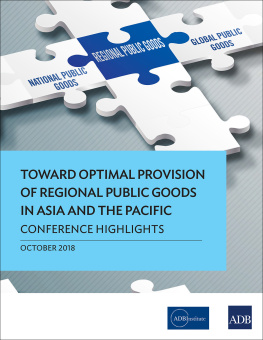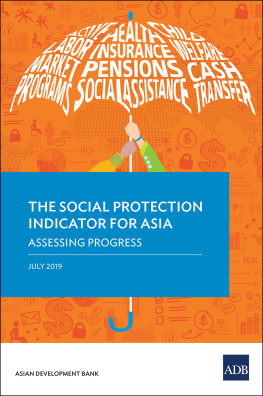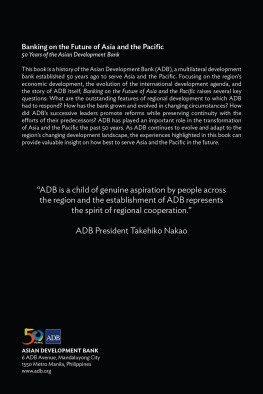Impact Investors in Asia
Characterisitics and Preferences for Investing in Social Enterprises in Asia and the Pacific
2011 Asian Development Bank
All rights reserved. Published in 2011.
Printed in Singapore.
ISBN 978-92-9092-467-8 Publication Stock No. RPT114067
Cataloging-In-Publication Data
Asian Development Bank.
Impact investors in Asia: Characteristics and preferences for investing in social enterprises in Asia and the Pacific.
Mandaluyong City, Philippines: Asian Development Bank, 2011.
1. Investment 2. Social enterprises 3. Asia and the Pacific 4. Asian Development Bank.
The views expressed in this publication are those of the authors and do not necessarily reflect the views and policies of the Asian Development Bank (ADB) or its Board of Governors or the governments they represent.
ADB does not guarantee the accuracy of the data included in this publication and accepts no responsibility for any consequence of their use.
By making any designation of or reference to a particular territory or geographic area, or by using the term country in this document, ADB does not intend to make any judgments as to the legal or other status of any territory or area.
ADB encourages printing or copying information exclusively for personal and noncommercial use with proper acknowledgment of ADB. Users are restricted from reselling, redistributing, or creating derivative works for commercial purposes without the express, written consent of ADB.
Note:
In this publication, $ refers to US dollars.
6 ADB Avenue
Mandaluyong City
1550 Metro Manila
Philippines
Tel +63 2 632 4444
Fax + 63 2 636 2444
www.adb.org
For orders, please contact:
Department of External Relations
Fax +63 2 636 2648
Foreword
This is the report of the Impact Investor Assessment conducted as part of the Asian Development Bank (ADB) Regional-Research and Development Technical Assistance (TA) project: Developing a Regional Social Investment Exchange Initiative. The project is financed by the Investment Climate Facilitation Fund under the Regional Cooperation and Integration Financing Partnership Facility.
The research was conducted by and this report was prepared by Impact Investment Shujog Limited (Shujog) as consultant to the ADB.
Shujog would like to acknowledge significant contributions to the research made by Impact Investment Exchange Asia (IIX). The research was built on and was contextualized by prior research conducted by IIX with generous financial support from the Rockefeller Foundation.
Special thanks are also due to the many survey respondents and interviewees who took time out of their busy schedules to provide the input which was essential to the success of the research. Lastly, thank you to Shujogs many volunteers, without whom this report would not have been possible.
This consultants report does not necessarily reflect the views of ADB or the Government concerned, and ADB and the Government cannot be held liable for its contents.
Please note that for the purposes of this report, $ refers to US dollars.
Table of Contents
About The Project |
EXECUTIVE SUMMARY |
Background |
Survey Methodology |
Key Findings |
PROJECT CONTEXT |
Overview Of Impact Investing |
Disconnect Between Capital Supply And Demand |
Benefits Of A Regional Stock Exchange |
The Role Of IIX And Shujog In Creating A Successful Social Stock Exchange |
Engagement Framework |
Approach |
Survey Format |
Target Investors |
ANALYSIS OF FINDINGS |
Overview |
Profile Of Survey Respondents |
Participation In Impact Investing |
Prerequisites To Realize The Potential Of Impact Investing |
Prospective Impact Investment Methods |
Attractiveness Of A Social Stock Exchange |
Reasons For Favoring The Development Of A Social Stock Exchange |
Preferences For Social Impact Indicators And Assessment Methodologies |
Operational Requirements For A Social Stock Exchange |
Concluding Remarks |
RECOMMENDATIONS |
Overview |
Recommendations For Creating A Regional Social Stock Exchange |
Realizing A Successful Stock Exchange: The Role Of lix |
APPENDIX |
Defining Impact Investing |
Defining Social Enterprise |
Social Enterprises In Asia |
Defining Social Stock Exchange |
Impact Reporting And Investing Standards |
Shujog Sustainability Framework |
Impact Investor Survey |
ABOUT THE PROJECT
The aim of the research is to understand the buy side of the market for impact investing in Asia and the Pacific. Specifically, this project places emphasis on understanding the scale and scope of capital pools available for impact investment in sustainable social enterprises (SEs)
The research seeks to understand, What engages investors in impact investment? What is the current and projected level of interest? What is the need for and appeal of a social stock exchange? and What are the operational requirements for each investor category to participate on a social stock exchange? all in the context of Asia and the Pacific region.
This report provides insights to investors keen to invest in the region, financial intermediaries that advise SEs on capital raising, and developers of platforms seeking to connect SEs in the region with impact investors. Impact Investment Exchange Asia (IIX), an SE based in Singapore, is applying the final outputs of this research as it finalizes the operating features of Asias first social stock exchange, which it is creating. The outputs of the research will also aid policy makers and institutional actors to better understand and foster an environment for sustainable development through impact investing.
Impact Investors in Asia
EXECUTIVE SUMMARY
EXECUTIVE SUMMARY
Background
Impact investing has emerged as an alternative asset class that channels large-scale private capital into addressing the worlds most pressing social and environmental challenges. J.P. Morgan estimates that the impact investment market has the potential to absorb between US$400 billion and US$1 trillion over the next decade, even when only including five sectors (housing, rural water delivery, maternal health, primary education and financial services) in the analysis. While foundations, development finance institutions and ultra-high net worth individuals have been the traditional pioneers in impact investing, there is a large supply of untapped impact investment capital among individuals and institutions that can help to meet this investment demand over the coming years. Our hypothesis is that the development of a social stock exchange serving SEs in Asia and the Pacific can help to unlock this supply of impact investment capital.

